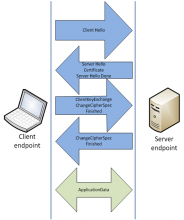Hacker claim about bug in fixed OpenSSL likely a scam
Security experts have expressed doubts about a hacker claim that there’s a new vulnerability in the patched version of OpenSSL, the widely used cryptographic library repaired in early April.
A group of five hackers writes in a posting on Pastebin that they worked for two weeks to find the bug and developed code to exploit it. They’ve offered the code for the price of 2.5 bitcoins, around US$870.










































































